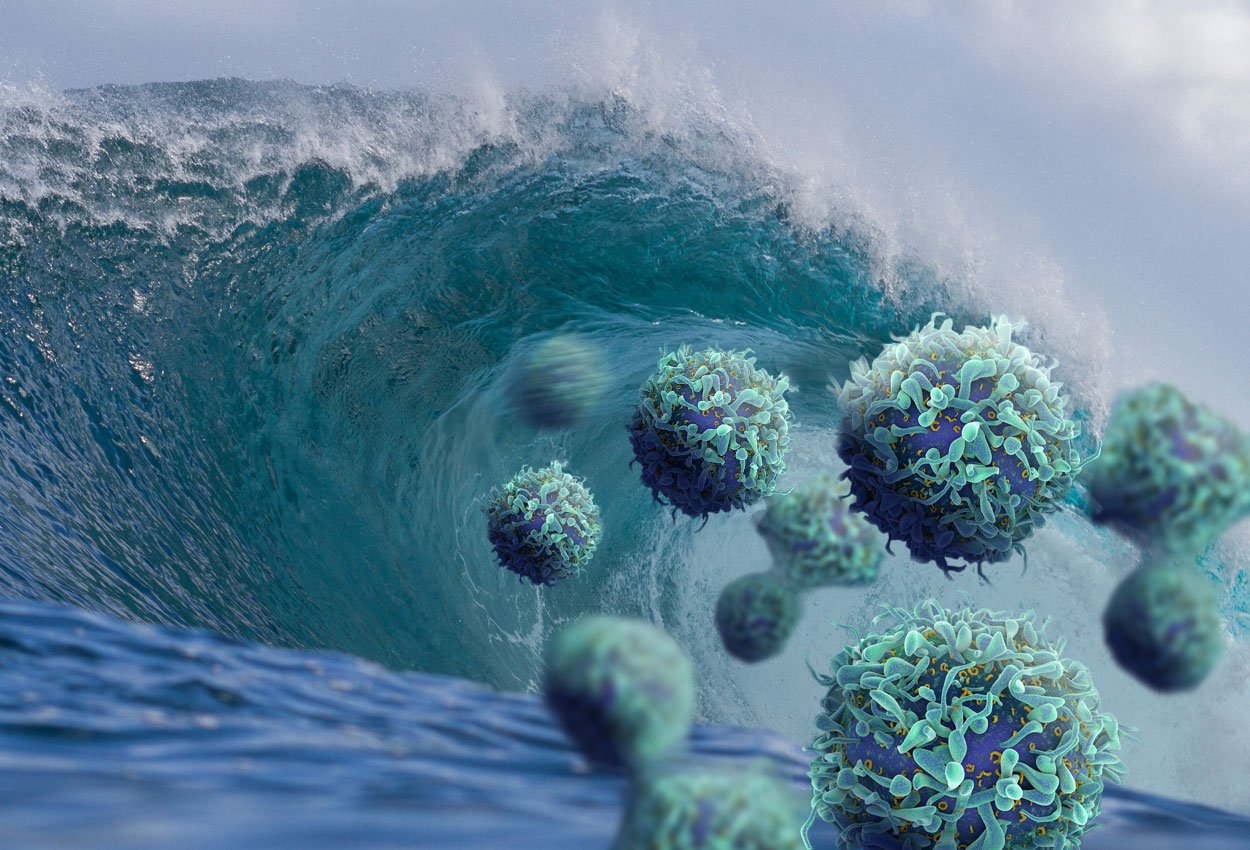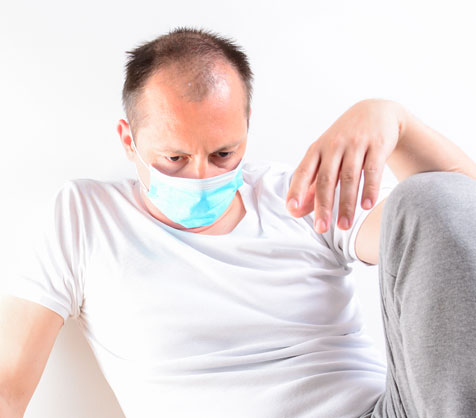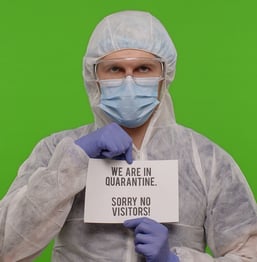
When the World Health Organization (WHO) declared COVID-19 a pandemic in March of 2020, the world quickly became more concerned about protecting their health. However, despite these concerns, visits to doctor’s offices and emergency rooms in the U.S. saw an immediate decline as patients cancelled or postponed annual visits and preventive screenings due to fear of exposure to the COVID-19 virus.
A survey released in August 2020 by the Prevent Cancer Foundation, a nonprofit organization, reported that almost half of American adults had missed routine medical appointments, and more than a third of Americans had missed scheduled cancer screenings because of COVID-19.
“The survey shows that, in the wake of the pandemic, people are afraid to go to their doctors. Understandably, there is a lot of fear about exposure to the virus. What we need everyone to know is that missing appointments puts you at much higher risk for serious health issues, such as cancer,” said Carolyn “Bo” Aldigé, Founder and CEO of the Prevent Cancer Foundation.
Health experts nationwide warned at the time that those missed appointments and screenings could lead to another fatal consequence of the coronavirus pandemic.
"Tsunami of cancer" predicted
Dr. Jeffrey Drebin, Chair of the Department of Surgery at Memorial Sloan Kettering Cancer Center, stated in July 2020 that pushing back scheduled screenings also meant pushing back life-saving medical treatments.
“There’s little question that screening for cancer is associated with a reduced risk of dying from cancer,” he said. “Sometimes, even a month or two substantially reduces a chance of curing a patient because of delays in surgery, chemotherapy or other treatments.”
"What we're worried about, of course, is that there may be a tsunami of cancer out there that's going to suddenly show up," said Dr. Keith Stewart, director of the Princess Margaret Cancer Centre in Toronto.
Physicians’ fears regarding missed appointments well-founded.
 A new study by the American Society for Radiation Oncology (ASTRO) indicates that advanced cancer cases have been steadily rising as the U.S. passes the one-year mark of the COVID-19 pandemic.
A new study by the American Society for Radiation Oncology (ASTRO) indicates that advanced cancer cases have been steadily rising as the U.S. passes the one-year mark of the COVID-19 pandemic.
In fact, two-thirds (66%) of the radiation oncology survey respondents said new patients are presenting with more advanced-stage cancers and nearly three-fourths noticed missed cancer screenings among their patient populations, echoing the existing data on lapsed screenings.
Perhaps more concerning, two-thirds said their existing patients experienced treatment interruptions due to the pandemic, most often caused by COVID-19 quarantine or illness of the patient or their caregiver.
Getting patients back to screening and treatment
To combat this trend, healthcare practices are working hard to engage with patients regarding their hesitation to keep their screening appointments and actively communicating the importance of continued screening for early detection of cancers, reassuring them of the use of enhanced safety protocols during the exam.
This effort seems to be working - the survey found that appointment deferrals and postponements have decreased measurably. Only 15% reported postponing treatment in January/February 2021, compared to 92% in April 2020.
While the number of cancer screening and treatment appointments are rising to near normal levels, some doctors fear that the damage could already be done.
Dr. Eric Feuer, Chief of the Statistical Research and Applications Branch in NCI’s Division of Cancer Control and Population Sciences believes that the results of delayed screenings will reveal itself over time.
In fact, the National Cancer Institute (NCI) predicts there will be as many as 10,000 additional deaths during the next 10 years related to the delayed diagnosis of breast and colorectal cancers.
Emphasis on safety key to overcoming patient anxiety
With more people in the United States getting vaccinated for COVID-19, patient anxiety about in-person  appointments will likely continue to decrease. It is still imperative, however, that medical offices continue to follow safety measures.
appointments will likely continue to decrease. It is still imperative, however, that medical offices continue to follow safety measures.
The ASTRO survey indicates that most practices are continuing to do so. 99% of clinics are requiring masks for both patients and staff, 95% are screenings patients and staff for COVID-19 exposure, 93% have increased sterilization and 100% of the clinics surveyed have social distancing protocols in place. A no-visitor policy is also common, with 73% of clinics reporting they only allow the patient in during their appointment.
It will be these measures, clearly communicated, consistently implemented, and updated as new evidence becomes available, that will engender in patients the confidence they need to seek care and lead to earlier cancer detection and treatment plans.
But is emphasis on safety enough?
 As we noted in an earlier article, cancer affects more than just the body. Patients are scared, anxious, and stressed.
As we noted in an earlier article, cancer affects more than just the body. Patients are scared, anxious, and stressed.
According to Elizabeth Koelker, M.H.A., FACHE, a director of The BDO Center for Healthcare Excellence & Innovation, "As institutions move forward, they need to understand the importance of caring for the mind and spirit."
"Although many healthcare systems are starting to loosen their visitor policies, cancer programs are mostly sticking to the no-visitor policy. This can be a profound source of stress to patients who find comfort and strength in the presence of a trusted loved one during treatment."
Koelker cautions that while it’s too soon to measure, many providers may anticipate an overall decrease in adherence from patients who skip their treatment appointments because their support person can’t be present.
She also feels that canceling in-person support groups and restricting visitors, although a necessary measure to help reduce the spread of COVID-19, can also have serious negative impacts for patients with cancer. Support groups help alleviate the loneliness and isolation associated with a cancer diagnosis, and complimentary therapies such as exercise rehabilitation programs, are scientifically proven to have positive effects on long-term survival.
So where do we go from here in cancer care?
In the article, "Impact of the COVID-19 Pandemic on Cancer Care: A Global Collaborative Study," the authors point out that, due to the nature of the disease, "patients with cancer are required to visit health care facilities more than patients with other diseases."
Cancer treatment requires a full involvement of multidisciplinary teams and requires patients to make multiple visits for assessment by different clinicians, laboratory or imaging tests for diagnosis, staging, or monitoring of treatment effects, in addition to different types of procedures and interventions.
The authors stress that "besides medical providers, patients with cancer need the help of many other disciplines, such as social workers, psychologists, educators, and other support services," and that services need to work in harmony with each other in a timely fashion. It also requires "great commitment and compliance from the patients because any unjustifiable deviation from the well-established standards may lead  to fragmented and poor-quality care and worse patient outcome."
to fragmented and poor-quality care and worse patient outcome."
As a result of the pandemic, cancer centers faced challenges in maintaining the same level of care and many still do. Telehealth and virtual therapies helped fill the gap for some, but is it enough to help these patients cope with their fears and diagnoses?
While many states are relaxing measures and the number of vaccinated increases, there is still the specter of future surges and vaccine resistant variants to consider that can result in them once again delaying care.
What is the balance between virus containment and whole-patient care that will help patients feel comfortable and confident in their treatment plans?
Related articles:

Beth Kyle
Product Manager
